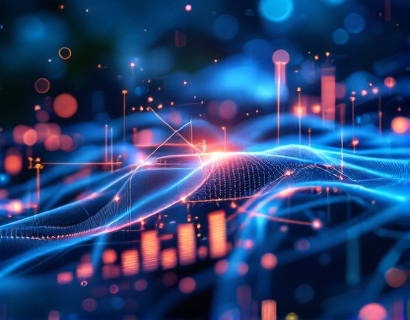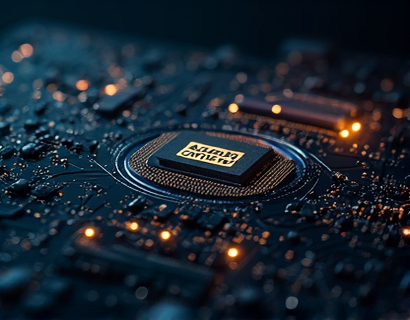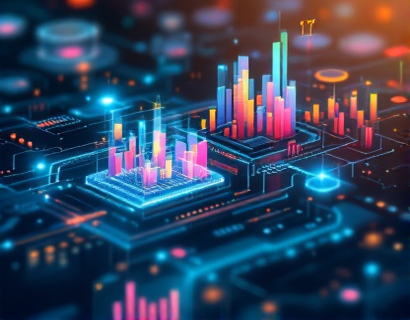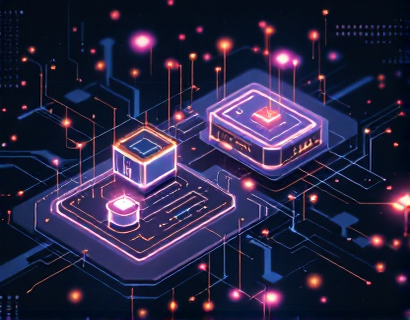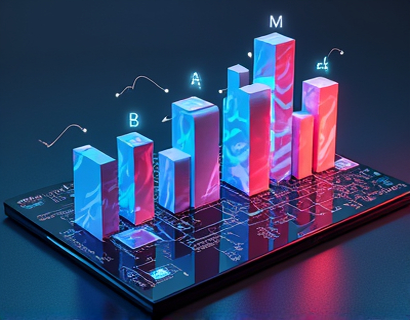Blockchain Oracle Management: Enhancing Decentralized Applications with Advanced Data Integration and Smart Contract Solutions
In the rapidly evolving landscape of blockchain technology, the role of oracle management has become increasingly pivotal for the development and operation of decentralized applications (DApps). Oracle management involves the integration of external data sources into blockchain networks, enabling DApps to access real-time information and interact with off-chain systems seamlessly. This article delves into the advanced software solutions that transform oracle management, focusing on how these solutions enhance data integration and smart contract capabilities, ultimately unlocking the full potential of blockchain technology.
Understanding Oracle Management in Blockchain
Oracle management is a critical component in the ecosystem of blockchain technology. Oracles serve as bridges between the blockchain and the external world, providing necessary data and commands to smart contracts. Without reliable oracles, smart contracts would lack the dynamic interaction required to function effectively in real-world scenarios. The primary challenges in oracle management include ensuring data accuracy, maintaining security, and achieving low latency in data transmission.
The importance of oracle management cannot be overstated. For DApps to be practical and useful, they must have access to timely and accurate data from various sources such as financial markets, IoT devices, and sensor networks. Oracle management solutions address these challenges by providing robust frameworks for data aggregation, validation, and transmission, ensuring that smart contracts can execute based on the most current and reliable information.
Advanced Data Integration Techniques
One of the key advancements in oracle management is the implementation of sophisticated data integration techniques. These techniques enable the seamless aggregation of data from multiple sources, ensuring that smart contracts have access to a comprehensive and up-to-date dataset. By leveraging APIs, web scraping, and data streaming services, modern oracle management platforms can collect and process data from diverse origins, including public databases, private APIs, and real-time streams.
For instance, a decentralized finance (DeFi) application might require real-time market data to execute trades accurately. An advanced oracle management solution can integrate with multiple cryptocurrency exchanges and market data providers, aggregating the data and presenting it to the smart contract in a structured and secure manner. This ensures that the smart contract can make informed decisions based on the latest market conditions, enhancing the overall reliability and efficiency of the DApp.
Enhancing Smart Contract Functionality
Smart contracts are the backbone of DApps, automating and enforcing agreements without the need for intermediaries. However, their capabilities are significantly enhanced when paired with advanced oracle management solutions. By integrating reliable data sources, smart contracts can perform complex operations, such as executing trades, managing supply chains, and facilitating decentralized voting systems.
One of the most significant benefits of advanced oracle management is the ability to create more sophisticated and interactive smart contracts. For example, a supply chain management DApp can use oracles to track the movement of goods in real-time, updating the smart contract with each transition. This ensures that all parties involved have access to accurate and timely information, reducing the risk of fraud and errors.
Moreover, advanced oracle management solutions often include features such as data validation and error handling, which further enhance the robustness of smart contracts. By implementing mechanisms to verify the authenticity and integrity of the data provided by oracles, these solutions minimize the risk of malicious attacks and data tampering, thereby increasing the trustworthiness of the DApp.
Security Considerations in Oracle Management
Security is a paramount concern in oracle management. Given that oracles act as gateways between the blockchain and external systems, they are potential entry points for attacks. Advanced oracle management platforms address these security challenges through a multi-layered approach.
Firstly, these platforms employ cryptographic techniques to ensure the confidentiality and integrity of data transmission. Data sent to and from smart contracts is encrypted, making it difficult for unauthorized parties to intercept or alter the information. Additionally, oracle nodes are often distributed across multiple locations, reducing the risk of a single point of failure.
Another critical security feature is the use of reputation systems and incentivization mechanisms. Oracles that provide accurate and reliable data are rewarded, while those that fail to meet the required standards are penalized. This creates a self-regulating system where oracles have a vested interest in maintaining high-quality data, thereby enhancing the overall security of the oracle network.
Furthermore, advanced oracle management solutions often incorporate decentralized governance models, allowing the community to participate in decision-making processes related to security updates and protocol enhancements. This decentralized approach ensures that the oracle network remains resilient and adaptable to emerging threats.
Real-World Applications of Advanced Oracle Management
The practical applications of advanced oracle management are vast and varied, spanning multiple industries. In the financial sector, for example, oracle management solutions enable the creation of decentralized trading platforms that can access real-time market data, execute trades automatically, and settle transactions without the need for intermediaries. This not only reduces costs but also increases the speed and transparency of financial operations.
In the Internet of Things (IoT) domain, oracle management plays a crucial role in connecting and managing a vast array of devices. Smart contracts can interact with IoT sensors to collect data, trigger actions, and automate processes. For instance, a smart home system can use oracles to monitor environmental conditions, adjust heating and cooling systems, and optimize energy usage based on real-time data.
Another promising application is in the realm of decentralized identity management. Oracle management solutions can integrate with identity verification services to ensure that users can securely and privately manage their digital identities on the blockchain. This has significant implications for privacy and security, enabling users to control their personal data and authenticate themselves across various platforms.
Future Trends in Oracle Management
As blockchain technology continues to mature, the field of oracle management is expected to evolve significantly. One of the key trends is the integration of machine learning and artificial intelligence to enhance data processing and prediction capabilities. By leveraging AI, oracle management platforms can analyze large datasets, identify patterns, and provide predictive insights to smart contracts, further enriching the decision-making processes of DApps.
Another emerging trend is the development of cross-chain oracle solutions, which enable seamless data exchange between different blockchain networks. This interoperability is crucial for building a more connected and cohesive blockchain ecosystem, allowing DApps to access a broader range of data sources and services.
Additionally, the rise of layer 2 solutions and sidechains presents new opportunities for oracle management. These technologies can offload some of the data processing and transaction handling from the main blockchain, reducing congestion and improving scalability. Advanced oracle management platforms can integrate with these layer 2 solutions to ensure that smart contracts have access to timely and accurate data without compromising on performance.
Conclusion
In conclusion, advanced oracle management solutions are essential for the development and success of decentralized applications. By providing robust data integration and smart contract capabilities, these solutions unlock the full potential of blockchain technology, enabling more secure, reliable, and interactive DApps. As the blockchain ecosystem continues to grow, the importance of efficient oracle management will only increase, driving innovation and adoption across various industries.






